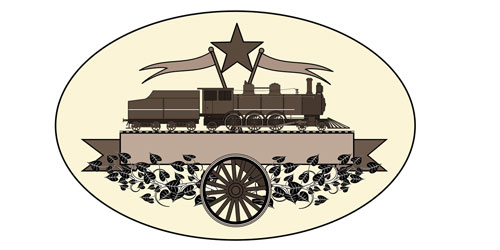《论语诠解英文版》——Chapter XX "尧曰" (Yao Yue)
[20- 1] 尧曰:" 咨!尔舜!天之历数在尔躬, 允执其中。四海困穷, 天禄永终。"舜亦以命禹。
曰: "予小子履敢用玄牡,敢昭告千皇皇后帝:有罪不敢赦。帝臣不蔽,简在帝心。朕躬有罪,无以万方;万方有罪,罪在朕躬。"
周有大赉,善人是富。“虽有周亲,不如仁人。百姓有过,在予一人。” 谨权量,审法度,修废官,四方之政行焉。兴灭国,继绝世,举逸民,
天下之民归心焉。
所重民:食、丧、祭。
宽则得众,信则民任焉,敏则有功,公则说。
20.1 Yao proclaimed, "Ah, you Shun! The celestial order of succession has now been bestowed upon you. Faithfully uphold the Middle Way. Boundless is the heavenly realm; everlasting are the emolument and wealth with which the Supreme Lord will endow you." Shun said the same to Yu when he handed over the reins of power to him. Tang said, "Your Excellency, I, the humble Lti, solemnly vow that I will of fer a black ox as a sacrifice to Thee, 0 Grand Supreme Lord, and that I dare not to pardon any sinners, nor cover the crimes of Jie, of which Your Illustri ous Lord has luminous knowledge. If I commit a fault, please do not blame it on the people under heaven. If the people commit offenses, I solely should be held accountable."
The Zhou rewarded its princes and dukes with fiefdoms and generously en riched the virtuous. King Wu of Zhou said, "I have many close relatives, but they are no better than my virtuous people. If the people are found guilty, I should be the one who bears all responsibilities."
According to the Master, if meticulous attention is paid to the examination of the weights and measures, and to the institution of the rites of propriety in hopes of revitalizing the disrupted state organs, then good governance will be secured. If the conquered countries could be recovered, the broken family lineages be reconnected, and neglected talents be promoted, then the people under heaven will pledge their loyalty to the royal court. Of vital importance for the people are food, the rites of propriety for mourn ing, and sacrifices.
When rulers are forgiving, they will have people's support. When they are sincere, they will have people's trust. When they are diligent, they will have many accomplishments. When they are fair and just, they will make people happy.
[Com ment] "历数 11 shu" translates as "the heavenly order of royal succes sion." "尔躬色r gong" means "你身上 nT shen shang" (upon you). "允 执其中yun zhi qi zhong" connotes "to faithfully uphold the Middle Way or the Way of the Means." "允 yun" suggests "honest, not cheating." "天禄如 n lu" translates as "上天给予的禄位 s ha ng tian jT yu de lu w创" (the emolument and wealth the Supreme Lord will endow). Traditionally," 天禄永 终 tia n lu y6ng zhong" has two interpretations. One view holds that it means "The emolument and wealth endowed by the Supreme Lord will last forever." The other argues that it means just the opposite: "The emolument and wealth endowed by the Supreme Lord will disappear forever." Given the context, we opt for the first interpretation. Yao was one of the five sage emperors of antiquity in China, so was Shun who succeeded Yao and who passed his power to Yu the Great. "履 I u" refers to "殷汤 yTn tang," who was the founder of the Shang Dynasty (1600-1046 BC). Also known as "成汤c h的 g tang," his name was "子履 zT l u." " 玄 牡 xu6 n mu" means "a black ox," an animal that was traditionally used as a sacrifice during rituals. 啼 臣 d1 c h的 " refers to "桀 ji色" who was the last ruler of the Xia Dynasty (2070-1600 BC). " 简 jia n" connotes "简察 jia n ch6" (to know). " 赉 la i" means "赏赐 s ha ng c1" (to reward ... with gifts). Given the context, here it may suggest "generously rewarding princes and dukes." Traditionally, there have been two different interpretations of the sentence"所重民: 食、丧、祭。 su6 zhong mfn: shf, sang, jl." The first view believes that it implies, "Of primary importance are: people, food, the rites of propriety for mourning, and sacrifices." The second view, on the other hand, suggests, "Of primary importance for the people are: food, the rites of propriety for mourning, and sacrifices." We believe the second interpretation makes more sense against the context.
[Reading] This passage registers Confucius'admiration, reverence, and awe of the sage kings of antiquity and their paramount virtue, which was displayed in the preeminent accomplishments they had made that benefited the people. The passage, unusually lengthy, is not characteristic of the style of the majority of the Analects. Something seems to be missing, as the text does not read smoothly, particularly because of the lack of transition be tween the second and third paragraphs.
[20- 2] 子张问千孔子曰:“ 何如斯可以从政矣?” 子曰:“ 尊五美,屏四恶,斯可以从政矣。"
子张曰: “何谓五美?”子曰: “君子惠而不费,劳而不怨,欲而不贪,泰而不骄,威而不猛。"
子张曰: “何谓惠而不费?”子曰: “因民之所利而利之,斯不亦惠而不费乎?择可劳而劳之,又谁怨?欲仁而得仁,又焉贪?君子无众寡,无大小,无敢慢,斯不亦泰而不骄乎?君子正其衣冠,尊其瞻视,俨然人望而畏之,斯不亦威而不猛乎?”
子张曰:“何谓四恶?“子曰:“不教而杀谓之虐;不戒视成谓之暴; 慢令致期谓之贼;犹之与人也,出纳之吝谓之有司。"
20.2 Zizhang asked the Master, "What should be done to ensure good gov emance?" The Master replied, "Good governance can be ensured if the five virtues are respected and the four forms of bad government are avoided."
Zizhang further asked, "What are these five virtues?" The Master said, "The person in power blesses the people with happiness and prosperity without lavish spending; he makes them work without their resentment; he focuses on pursuing the virtuous and the righteous without any interest in personal gain; he is dignified without appearing arrogant; and he is imposing without sounding intimidating." Again, Zizhang asked, "What do you mean by'blessing the people with happiness and prosperity without lavish spending?'" The Master replied, "Encouraging the people to engage in doing whatever would benefit them selves, is this not'blessing the people with happiness and prosperity with out lavish spending?'No people would be resentful if they are allowed to do what they are able to do under conducive conditions, would they? One would not be avaricious if he attains virtue when pursuing it, would he? He remains respectful to all people, be they many or few in number, and to all things, be they great or small. Is this not'being dignified without appearing arrogant?'He keeps a stately bearing and is thus awe-inspiring. Is this not 'being imposing without sounding intimidating?'"
Zizhang further inquired, "What do you mean by the four forms of bad government?" The Master said, "To have people executed without having them educated first, is this not an appalling act of abuse? To require success from people without providing instruction and admonition first, is this not a despotic act of executive power? To issue administrative orders in a dilatory manner, yet suddenly demand an urgent deadline, is this not underhanded? To promise people with rewards and remuneration, yet implements it half heartedly, is this not stingy and ignoble?"
[Comment] "斯sT'' means "就 jiu," "exactly'that way.' " " 屏 bTng" trans- lates as "to abandon, to discard." "惠而不费 hul er b u 伶 i" suggests "bless ing people with happiness and prosperity without lavish spending." " 劳 而不 怨 16 0 er bu yuan" implies "making people work without causing their resentment." " 有 司 yo u sT''refers to "low-ranking management officials." In an extended sense, it implies "being stingy and mean-minded like petty officials."
[Reading] While the previous passage eulogizes the sage kings of antiquity and their paramount virtue, this passage discusses, in thoughtful terms, the politics of governance, that is, promoting "the five virtues" and avoiding "the four forms of bad government." It is indeed amazing that Confucius'in sightful ideas about governance still bear relevance to the present-day world even after a long span of over two and a half millennia.
[20- 3] 孔子曰: “不知命,无以为君子也。不知礼,无以立也。不知言,无以知人也。"
20.3 The Master said, "One cannot be a noble man of virtue if he does not recognize the Mandate of Heaven; one cannot establish himself if he knows nothing about the rites of propriety; one cannot understand others if he is un able to discern and interpret their speeches."
[Reading] Short though this passage is, it deals with three of the most im portant Confucian ideas: recognition of the Mandate of Heaven as a way to understand the relation between man and Heaven; knowledge of the rites of propriety as a way of establishing oneself; and ability to discern others' words as a way to position oneself in relation to the rest of society.












